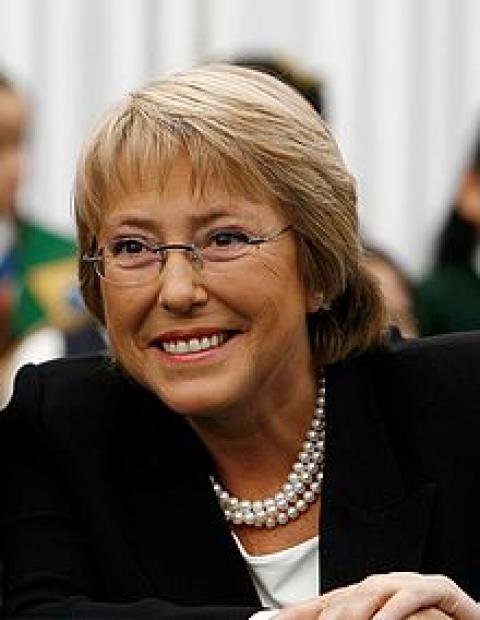There is no contest between the two leading candidates, Michelle Bachelet and Evelyn Matthei, in Chile's presidential election on Sunday. Ms Bachelet will be re-elected president - the only question being whether she achieves victory in one round or two. The two women do have, however, a shared history . As little girls they were neighbours in the same barracks, when their fathers, both generals in the air force, were friends. But there was always a political divide between the two families, and what bonds there were, were ripped apart by Augusto Pinochet's 1973 coup. Mr Matthei was promoted to run the air force, and remains to this day an unrepentant former member of the military junta. And Ms Bachelet's father was tortured, and died in detention of a stroke.
The past in Chile is still unfinished business. The 40th anniversary of the coup - on another 11 September - was commemorated in rival memorials. The outgoing centre-right president, Sebastián Piñera, wanted Chile to "move on", while Bachelet insisted that reconciliation was not possible without a full accounting of truth and justice. The country's supreme court apologised for not having done more to protect human rights in the aftermath of the coup, but there is a long way still to go. While 41% now blame Pinochet for the coup, there are still those in Chile who claim there was no option but to overthrow Salvador Allende.
If Allende's vision for Chile is triumphing over Pinochet's, Ms Bachelet will approach a second term with an agenda which if anything is more radical and progressive than that of her first term. Wealth is still concentrated in the hands of a few affluent families, and inequality, particularly in higher education, is a major issue. Pushed by students who have turned out weekly in their thousands in demonstrations which have captured public sympathy, Ms Bachelet is offering free higher education over the next six years. The cost of higher education is a running sore, which the outgoing president recognised by cutting interest rates on student loans and tripling the number of grants. Ms Bachelet will pay for this by raising the corporate tax rate and closing a loophole that allows companies to defer payments on reinvested earnings. Most ambitiously of all, she wants to replace Pinochet's constitution with one that allows more change, not least to a president's term of office. Watch also how the former head of UN Women attempts to loosen Chile's prohibition on abortion.
This is a big agenda. Much will depend on how well Ms Bachelet's bloc Nueva Mayoría performs in the concurrent parliamentary poll, as she remains more popular than her coalition. Turnout will matter now that sanctions for non-voting have been removed. By any measure, she is an impressive candidate, not just for Chile but for the left too.


Spread the word